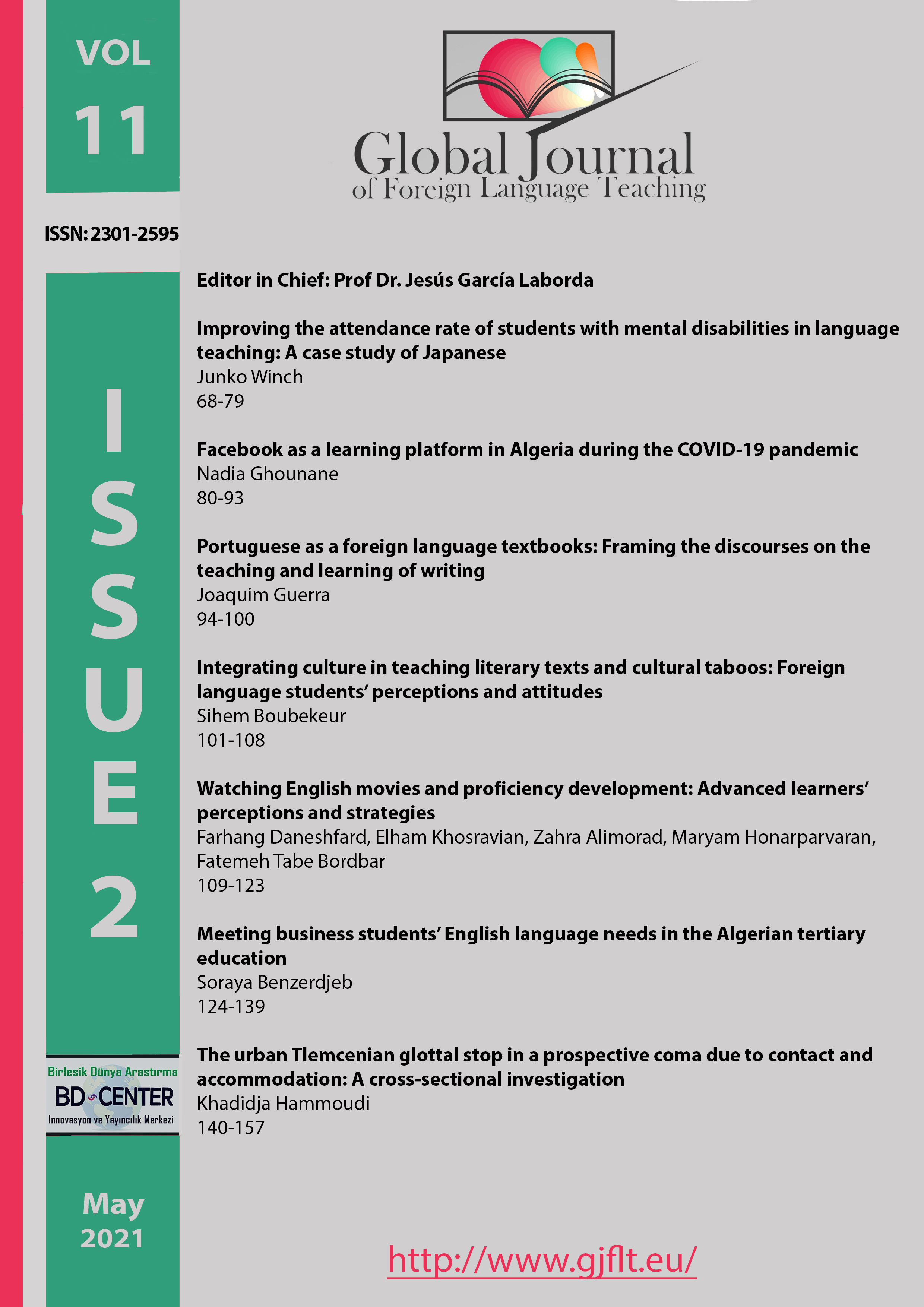Watching English movies and proficiency development: Advanced learners’ perceptions and strategies
Main Article Content
Abstract
Watching movies can help language learners improve their proficiency. However, important in this regard are what kinds of movies learners perceive as beneficial and how they benefit from watching movies. This study intended to discover advanced English learners’ perceptions and strategies regarding watching movies. To this aim, the researchers selected 34 advanced English learners in Iran. The participants completed a questionnaire and then the researchers interviewed them to find out their perceptions and strategies with regard to watching English movies. The findings suggested that the most favourite genres were comedy, documentary and animated movies, in the order given. Furthermore, the most common strategies used by the learners were writing down new vocabularies, reviewing them and using them in everyday situations. Moreover, advanced learners preferred to watch movies with English or no subtitles. The findings can aid English learners and teachers to become familiar with effective strategies regarding watching English movies.
Keywords: Advanced learners, English movies, learning strategies, learning perceptions, subtitles.
Downloads
Article Details

This work is licensed under a Creative Commons Attribution 4.0 International License.
Authors who publish with this journal agree to the following terms:- Authors retain copyright and grant the journal right of first publication with the work simultaneously licensed under a Creative Commons Attribution License that allows others to share the work with an acknowledgement of the work's authorship and initial publication in this journal.
- Authors are able to enter into separate, additional contractual arrangements for the non-exclusive distribution of the journal's published version of the work (e.g., post it to an institutional repository or publish it in a book), with an acknowledgement of its initial publication in this journal.
- Authors are permitted and encouraged to post their work online (e.g., in institutional repositories or on their website) prior to and during the submission process, as it can lead to productive exchanges, as well as earlier and greater citation of published work (SeeThe Effect of Open Access).
